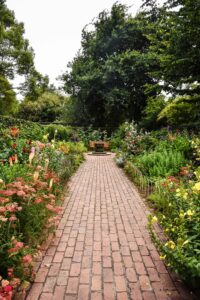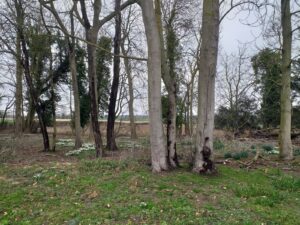why have a pleached tree screen
You may have a new landscape following development, an existing hedge that is diseased, the neighbour’s new extension or their children’s play area is spoiling the view. Perhaps you want to add height to an existing hedge or wall that is already at the legal maximum height. Pleached tree screens may be your answer as to how to hide those unpleasant views and create landscape privacy. Pleaching can also be used to create structure and interest in the garden. See below for a list of plants that are appropriate for helping create a pleached screen in your garden.
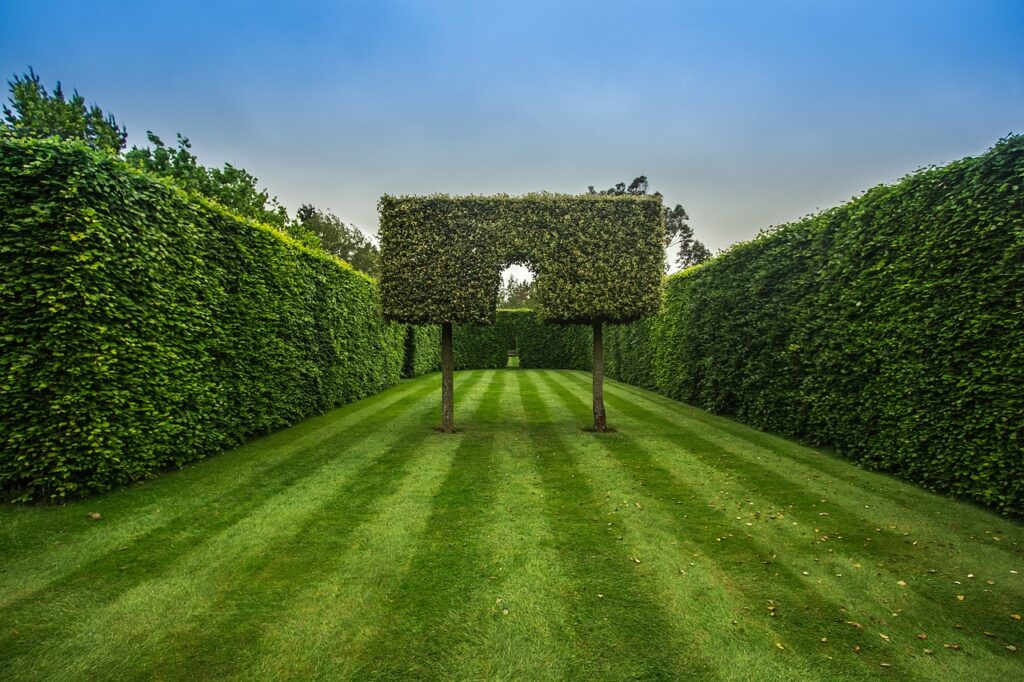
Pleached screens are a wonderful addition to gardens, providing privacy, structure, and beauty. They are essentially living fences created by training and intertwining the branches of trees or shrubs. They can be planted as rootballs in the winter or more expensively containerised in the other months. These trees are grown over many years and can retail between £300 per unit to £600 on a 12-14 stem size depending on the species chosen
One of our suppliers is the Romantic Garden who can source them from overseas.
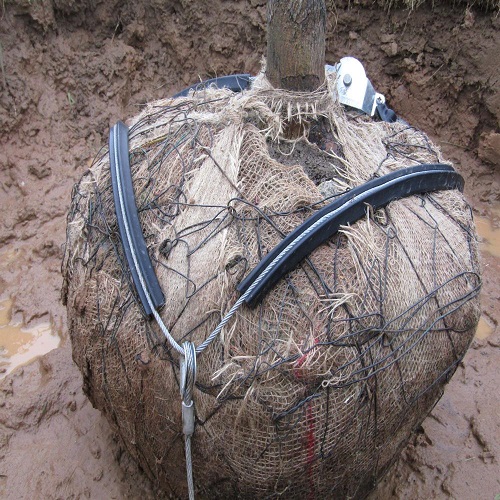
– Planting rootballs is technical with tree anchors.
And with all pleach screens we bind the pleaches together afterward with cane –
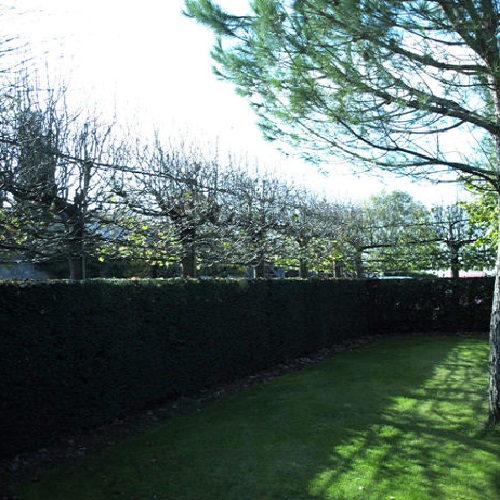
Plants for pleaching
Some trees are more appropriate for pleaching than others. Below are some that are known to work well, both evergreen, for all year round cover and deciduous.
Evergreen:
Ligustrum (Privet): Ligustrum species, such as Ligustrum lucidum or Ligustrum ovalifolium, are popular choices for evergreen pleached screens. They have dense foliage and can be easily shaped. The negative is the flower pollen and they are susceptible to soil pathogens such as honey fungus.
Prunus laurocerasus (Cherry Laurel): This evergreen shrub is commonly used for pleached screens because of its lush, dark green foliage and fast growth rate. This prunes well and has some tolerance to soil pathogens
Photinia: Photinia x fraseri, for instance, is a popular choice for its vibrant red new growth and dense foliage, making it suitable for pleaching. It is somewhat susceptible to fireblight if pruned at the wrong time of the year or the neighbours reach over and clip it back
Holly: Winter berries and fully evergreen. At the expensive end of the range of pleached trees
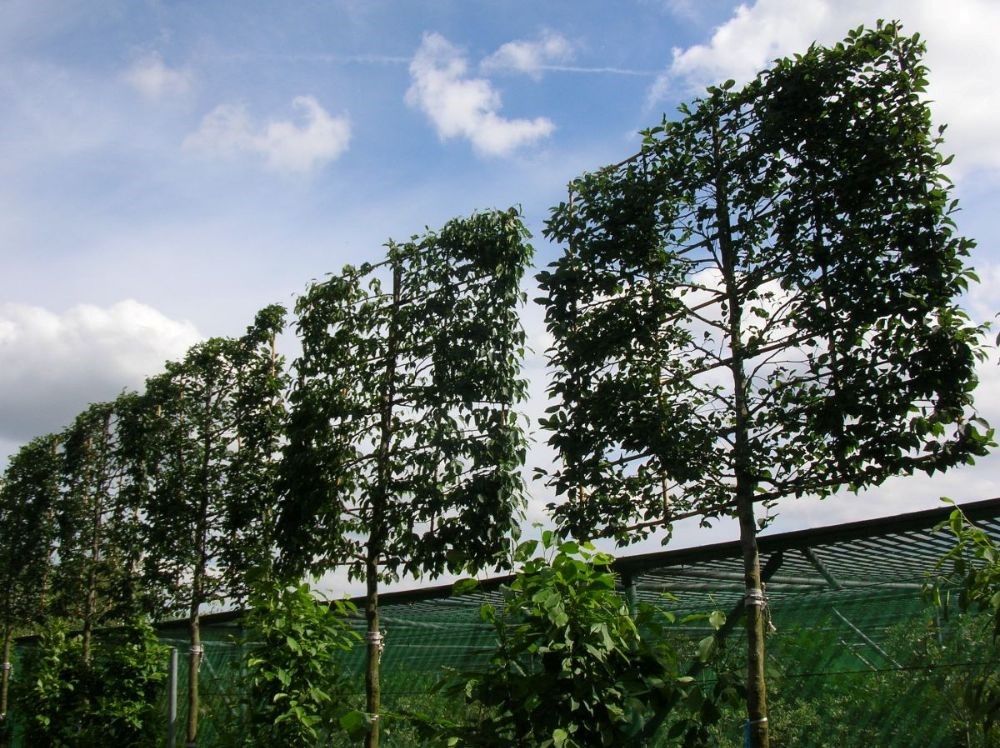
Deciduous:
Hornbeam (Carpinus betulus): Hornbeam is a popular choice for deciduous pleached screens due to its ability to retain brown leaves throughout winter, providing some privacy even in the dormant season. Its has a tolenace to honey fungus.
European Beech (Fagus sylvatica): Beech trees offer beautiful foliage that turns copper in autumn before falling, providing seasonal interest to pleached screens.
Hawthorn (Crataegus monogyna): Hawthorn is often chosen for its spring blossoms and autumn berries, adding visual interest to the pleached screen throughout the year.
Pleached lime tree screens offer privacy, aesthetic charm, sound insulation, wind protection, sunlight control, wildlife habitat, property value enhancement, low maintenance, and seasonal interest, making them a versatile and enduring landscaping choice
Quercus (Oak): Some species of oak, such as Quercus robur (English oak) or Quercus ilex (Holm oak), can be trained into pleached screens. They provide beautiful autumn color and are a long-lasting choice for a screen.
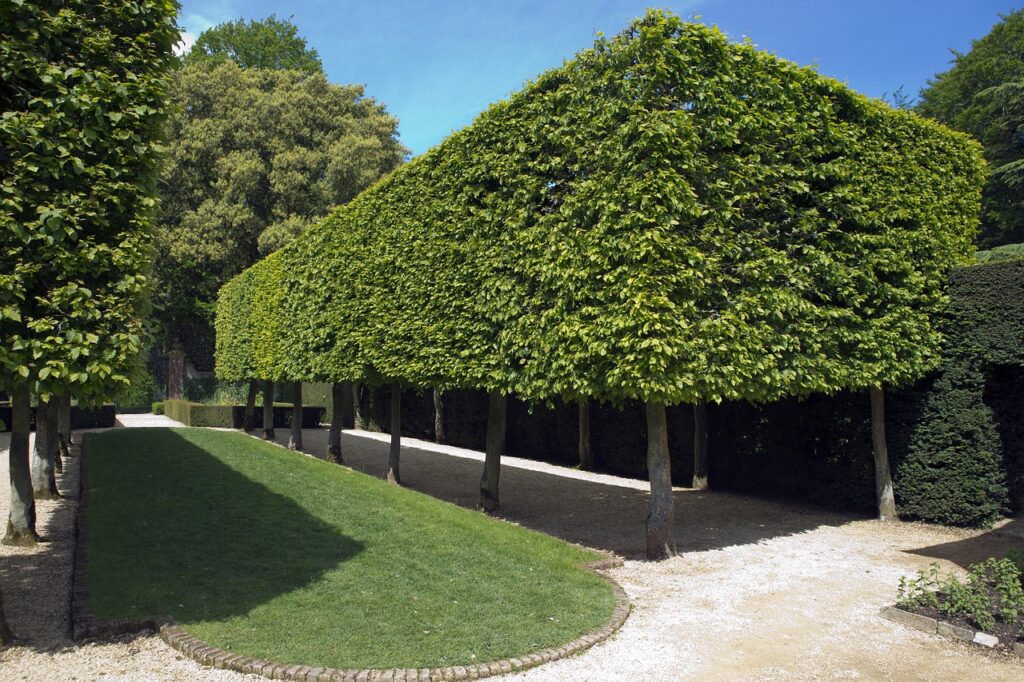
When selecting plants for pleached screens, it’s essential to consider factors like the desired height, width, growth rate, maintenance requirements, and the local climate to ensure the screen thrives and meets your needs.
All tree planting should be compliant with BS8545, so consideration of tree Irrigation, soil biochar to ensure a good soil environment, and root barrier if there is a patio or services nearby are essential.
Please get in touch with if you want guidance or help going forward 01603 487447 info@acespadesgardens.co.uk


